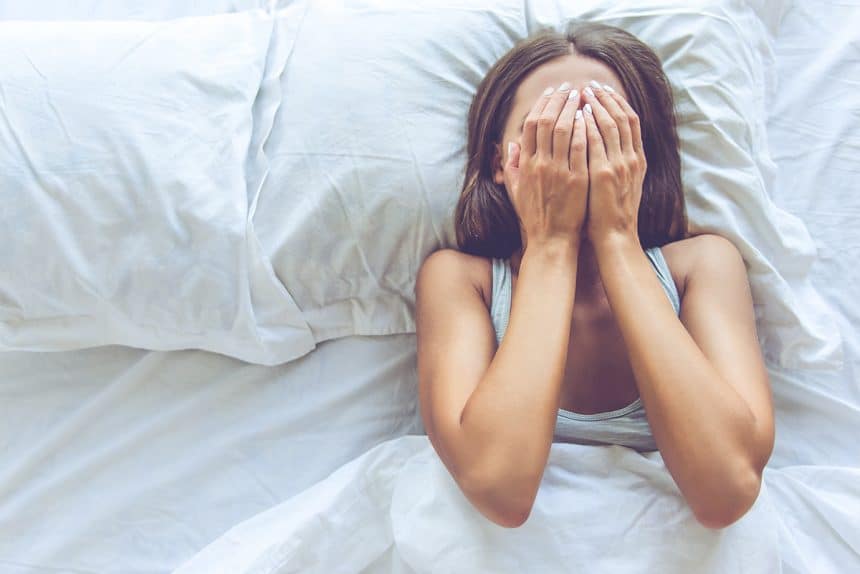Feeling edgy, having trouble concentrating, losing sleep and waking early with anxious feelings are completely normal human reactions to a completely abnormal situation. Worrying about both the present and the future is part of the experience right now.
Proud to have been featured in Strong Fitness Magazine Australia, recognising such an important topic as our sleep, and its connection to our well being.
Six steps to a better night’s sleep
BY ANGELIQUE TAGAROULIAS15 AUGUST 20200FacebookTwitterPinterest
Feeling stressed and on edge? Having trouble easing into a deep sleep come bedtime? You are not alone. Around one third of Australians experience insomnia at some point in their lives. This can be due to a number of factors, including a lack of sleep routine, the consumption of caffeine and alcohol, stress and anxiety, health problems and undertaking shift work.
So during a time of great uncertainty where more people are experiencing financial stress, isolation and social disconnect, it’s no wonder many of us are losing some serious shut-eye.
‘Feeling edgy, having trouble concentrating, losing sleep and waking early with anxious feelings are completely normal human reactions to a completely abnormal situation,’ says Sleep Coach Cheryl Fingleson. ‘Worrying about both the present and the future is part of the experience right now.’
And for many of us our sleep is suffering, she says.
How sleep impacts your health and wellbeing
Want to be at the top of your game when you eat, train and work? Then sleep is a must. Cognitive tests showing vast differences between a well-rested brain versus a sleep deprived brain.
‘The sleep deprived brain is acutely affected the following day because we haven’t given the brain time to do the functions that it needs to do in order for it to be ready for the next day’s set of information and decision making,’ says sleep expert Dr Carmel Harrington.
‘There’s a really important part of the brain called the pre-frontal cortex – situated behind the forehead, and this gives us our smarts. If we don’t sleep well, it’s very difficult to access our pre-frontal cortex the next day. Because we aren’t able to activate it, we think slower, and we can’t access different memories and processes that our brain goes through.’
What’s more, less sleep results in an increased emotional centre. Meaning, you can feel moody, down and irritable for absolutely no reason.
Sleep deprivation also prevents your immune system from building up its forces – particularly important during winter and a health pandemic.
So what’s the secret to catching enough regular zzzzs? Here’s six habits that the experts say you should adopt, stat:
1. Routine, routine!
Set a regular bed time and wake time (seven days per week, not five!). Your internal body clock (known as your circadian rhythm) cycles between wakefulness and sleepiness at regular intervals. It’s important to sync your body clock right so that you tap into a natural cycle of energy and recovery.
Try to switch off all electronics 90 minutes before you get snug under the sheets, says Fingleson. That includes no replying to emails, scrolling through your Insta feed or finishing Season 3 of Brooklyn Nine-Nine.
‘It may be tempting to stay up late watching your favourite shows because you don’t have to go to work in the morning, but it is more important than ever to prioritise your sleep,’ she says. ‘If you can’t do 90 minutes straight up, start with 15.’
Why is this important?
While it’s tempting to check the news before bed, it can increase your anxiety levels. Stay informed, but perhaps monitor updates during the day, suggests Fingleson. Instead, try planning for the next day.
‘Setting plans of action for the morning can help alleviate uncertainty,’ she says. ‘We tend to keep our anxieties bottled up and they burst out in the dark. Try to clear out the mental cabinet ahead of time.’
What’s more, blue light causes the body to produce less melatonin, the hormone that regulates sleep and wakefulness, says Harrington. On the other hand, candles send very strong messages to the brain encouraging it to produce the feel-good hormone serotonin, making you feel relaxed. Hint: We love these Coconut and Lime beauties from Palm Beach Collection.
2. Make yourself comfortable
Take a warm bath or shower, and make sure your bed is comfortable and your room is dark.
Your body likes to fall asleep on a falling temperature, according to Harrington. If we have warm skin as the temperature starts to fall, we can feel that drop more significantly, helping us to dose.
And you can’t go wrong with a freshly washed set of Egyptian cotton threads waiting for you post-shower..
Tip: Invest in a good-quality mattress. Some people like to spend their pretty pennies on a flash car or designer handbag. While we’re not opposed to individual indulgences, who wouldn’t want to invest in an item they spend around eight hours of their day on?
3. Exercise daily
This goes without saying. But Fingleson emphasises that keeping active not only makes you feel tired and ready for bed, it also alleviates any anxious and nervous energy that might have built up.
While there’s no clear connection between exercise and treating chronic insomnia, numerous studies have indicated that even moderate-intensity aerobic exercise (think walking or a slow job) can improve sleep quality and quantity.
What’s important is that you do something active every day. It can be as simple as a walk around the neighbourhood or an at-home HIIT workout, says Fingleson.
4. Breathe easy and relax
Stressful thoughts tend to manifest while you’re lying still in bed at night. So try to switch your brain to more positive thoughts, such as things you are grateful for, suggests Fingleson.

Breathing exercises can also help. Get in a comfortable position, inhale slowly, hold your breath, then exhale slowly. Repeat as necessary.
Yoga is another great way to wind down and relax. A national survey conducted by the Department of Human Services in the United States found that 85 per cent of participants reported yoga helped to reduce their stress levels. And when it came to sleep, 55 per cent of people who did yoga said that it helped them get a better night’s rest.
But be warned, it’s best to avoid meditation before bedtime, unless it is a meditation aimed at sleep (such as a guided Yoga Nidra), says Harrington. Meditation is quite alerting to your brain – so it might be best to save the oms for when you wake or when you hit an afternoon slump.
If you are suffering from ongoing anxiety, it’s best to speak with your GP or other medical professional. Asking for help is really important, especially during these increasingly tough times.
5. Don’t eat or drink alcohol right before bed
Eating too close to bedtime can cause indigestion, which will only make you feel uncomfortable, and could worsen any anxious feelings that might be festering.
And while knocking back a couple of Cab Savs can make you sleepy, it doesn’t promote quality rest, warns Fingleson.
Numerous studies show that alcohol can initially act as a sedative, but later causes sleep disturbances. Explains why you hit the hay hard after a few reds, but feel restless for the second half of the night, and wake feeling foggy-headed.
6. Get in tune with your body’s needs
If you’re feeling a bit under the weather, there’s a reason for it. Listen to your body and give it the extra rest it needs so that it can heal.
You’re also more likely to fall ill if your sleep-time is minimal. The immune system fires up during sleep, activating natural killer cell activity, which provides a defence against bacteria, viruses and even cancer.
‘When we don’t get enough sleep, we drop our killer cell activity by about 50 per cent, and studies have shown that we’re more likely to succumb to colds and flus because we haven’t got the protection of the killer cell activity,’ says Harrington.
Want more strategies for coping with COVID? Try these tips to help battle the blues and improve your home workstation ergonomics with this handy check-list.


